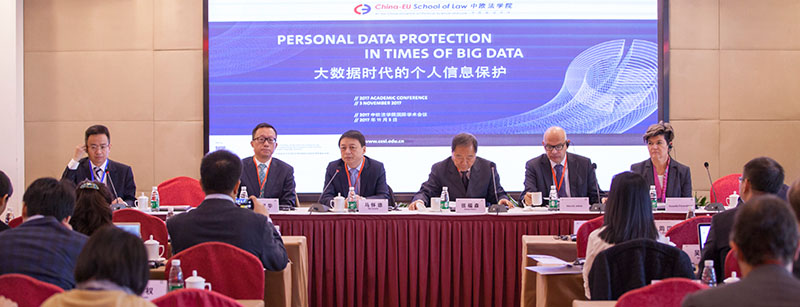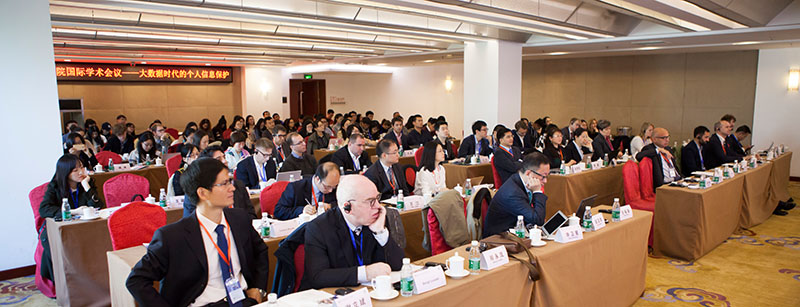Governmental officials and scholars from China and Europe have cast new light on questions of personal data protection in the age of Alibaba, Amazon, WeChat and Facebook. They were discussing the different approaches of the Chinese and European legislative bodies at the China-EU School of Law 2017 Academic Conference “Personal Data Protection in Times of Big Data” at the Beijing Jingyi Hotel on 3 November 2017. With over 110 participants from governmental institutions and academia, the conference reflected the large interest in the topic.

One of the most insightful findings came from key note speaker Zhou Hanhua, Assistant to the Director of the Law Institute at the Chinese Academy of Social Sciences (CASS), who recommended to Chinese law makers: “Neither copy the European model of individual protection nor the US model of risk control and consumer protection, but go beyond these models.” European legislation such as the European Union’s 2018 General Data Protection Regulation that was for instance analysed by Cosimo Monda, Director of the Maastricht European Centre on Privacy and Cybersecurity at Maastricht University, usually considers big data as a big risk and strengthens the protection of personal data. As opposed to that, Chinese legal scholars at the conference held the view that the protection of personal data is important, however, personal information should also be available for commercial purposes. Thus, to increase data protection in China, as Zhou Hanhua put it, “it is important to also motivate market players to improve data protection”.

Is data protection a question of fundamental rights or of property rights?
One legal aspect in particular peaked interest of the participants, namely whether the right to personal data protection should be regarded as a fundamental right within the frame of human rights or as a property right. Prof. Shen Weixing from Tsinghua University regards personal data also as the latter and wants Chinese law makers to refine traditional Chinese property law to go “beyond objects and bodies”. Prof. Wu Jinsong from South China Normal University put forward that scholars should also pay attention to government information policies. “We need to find a balance between personal data protection and the public right-to-know.”

Prof. Giovanni Comande from Sant’ Anna School of Advanced Studies in Pisa and Dr Joris van Hoboken from the University of Amsterdam pointed out the legal challenges implied by the latest technical developments for collecting data online. The internet of things, smartphones and apps, for instance, produce large amounts of data that easily can be linked to people. Conference participants agreed that law makers still need to find answers to aspects such as: How can the collection, storage and use of such big data legally be regulated? What are the best ways to increase law enforcement? How can corporate responsibility and self-regulation be encouraged by law makers?

The conference was organised by the China-EU School of Law (CESL) at the China University of Political Science and Law (CUPL). Discussants came from Chinese governmental institutions such as the National Development and Reform Commission, from universities including Tsinghua, Fudan, Strasbourg, Maastricht and Central European University, from the embassies of the Czech Republic, the Netherlands, France, Hungary and Germany as well as from global law firms such as Uría Menédez and CMS.

